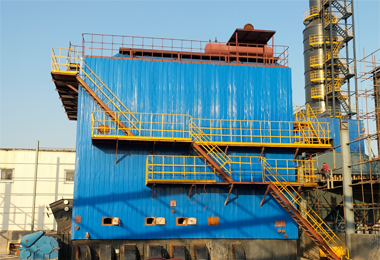
Nov . 02, 2024 10:06 Back to list
how to add water to steam boiler
How to Add Water to a Steam Boiler
Adding water to a steam boiler is an essential process that ensures the system operates efficiently and safely. A steam boiler works by converting water into steam through the application of heat, which is then used for heating, power generation, or various industrial processes. To maintain this process, it is crucial to manage the water levels appropriately. Below are the steps and considerations for adding water to a steam boiler.
Understanding Boiler Operation
Before adding water to a steam boiler, it's important to understand how the system operates. The boiler is designed to hold a specific volume of water, which is heated to produce steam. As steam is generated, the water level in the boiler will decrease. If the water level gets too low, it can lead to mechanical damage and unsafe operating conditions. Conversely, too much water can also pose problems, including reduced efficiency and overflow issues.
Monitoring Water Levels
Regularly checking the water level in your steam boiler is crucial. Most boilers are equipped with a sight glass, which provides a visual indication of the water level. Operators should frequently monitor this gauge, ideally before starting the boiler or during operation. Additionally, most modern boilers come with automatic water level controls that help regulate water levels, but manual checks are still necessary.
Preparing for Water Addition
When you determine that the water level is low, it's time to add water. First, make sure that the boiler is in a safe state to do so. If the boiler is hot and under pressure, it's important to relieve the pressure first. This can typically be done by shutting off the boiler and allowing it to cool down before attempting to add more water. Always consult the manufacturer's instructions and safety protocols to ensure compliance with standards.
Adding Water to the Boiler
how to add water to steam boiler

Once the boiler is safe, you can start the process of adding water. Most steam boilers are equipped with a water feed system that automatically adds water as needed. However, if you are manually adding water, follow these steps
1. Open the Feed Valve Locate the feed valve, which is usually found on the piping that connects the water supply to the boiler. Open this valve slowly to allow water to flow into the boiler.
2. Monitor the Water Level As water is added, continuously monitor the sight glass to ensure that you do not overfill the boiler. The recommended water level is typically highlighted on the sight glass.
3. Close the Valve Once the appropriate water level is reached, close the feed valve securely.
Safety Precautions
Safety should always be a top priority when working with steam boilers. When adding water, make sure to wear appropriate protective gear, such as gloves and safety goggles, to protect against potential burns or splashes. Always be cautious of steam pressure and temperature to avoid accidents.
Conclusion
Adding water to a steam boiler is a straightforward yet critical task that helps maintain the system's efficiency and safety. By following the right procedures and adhering to safety protocols, you can ensure that your steam boiler operates effectively and reliably. Regular maintenance and monitoring will not only extend the life of the boiler but will also enhance overall performance in its application.
-
High-Efficiency Commercial Oil Fired Steam Boiler for Industry
NewsJul.30,2025
-
High-Efficiency Biomass Fired Thermal Oil Boiler Solutions
NewsJul.30,2025
-
High Efficiency Gas Fired Thermal Oil Boiler for Industrial Heating
NewsJul.29,2025
-
High-Efficiency Gas Fired Hot Water Boiler for Sale – Reliable & Affordable
NewsJul.29,2025
-
High Efficiency Biomass Fired Hot Water Boiler for Industrial and Commercial Use
NewsJul.29,2025
-
High-Efficiency Biomass Fired Hot Water Boiler for Industrial Use
NewsJul.28,2025
Related PRODUCTS






















